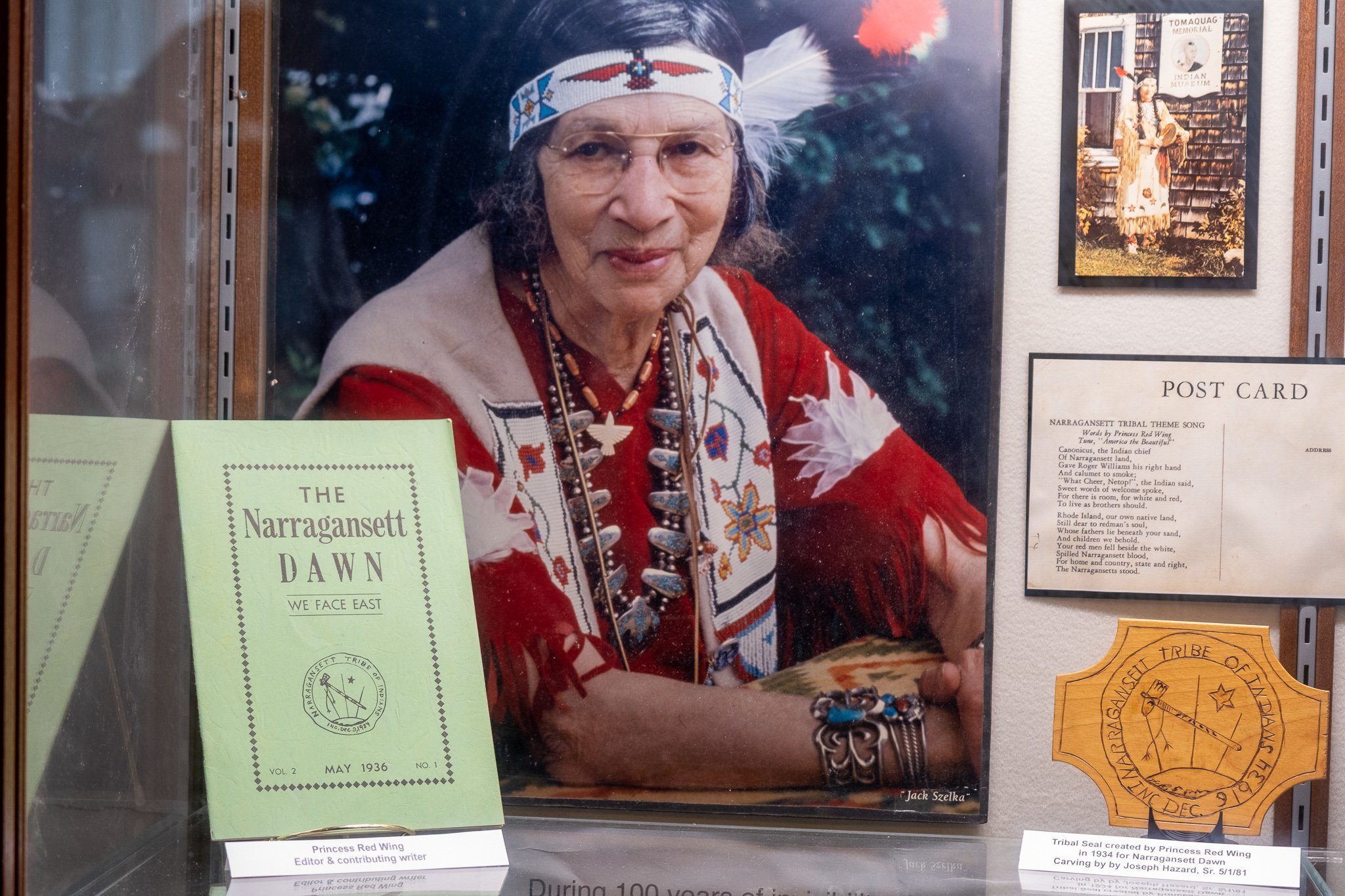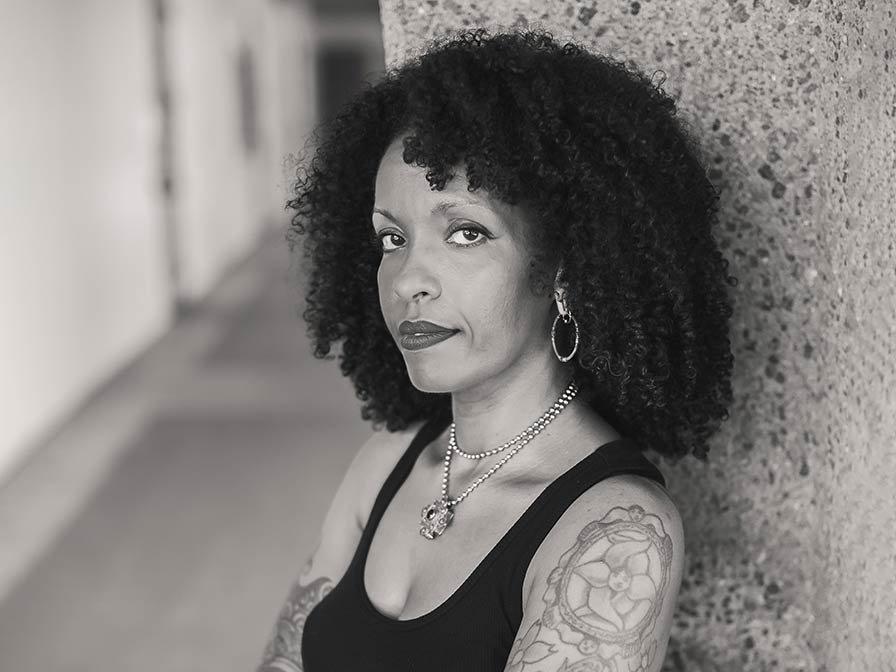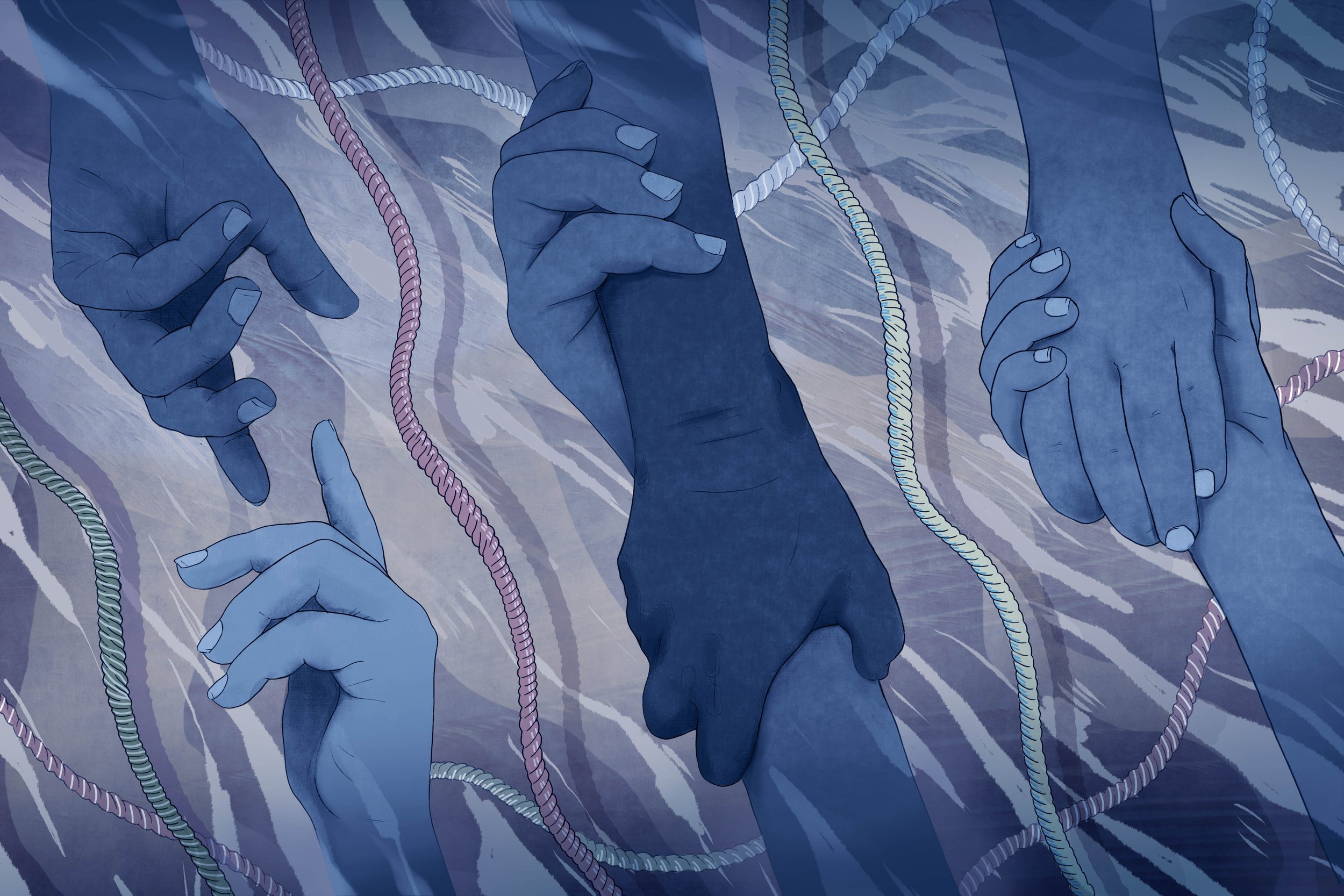
RNEH | 2021-2022
The Reimagining New England Histories: Historical Injustice, Sovereignty, and Freedom project began its work in January 2021 thanks to a generous grant from the Andrew W. Mellon Foundation’s Just Futures initiative. The project is deeply informed by a growing group of community advisors who actively advise and shape the contours of the project.
COLLABORATION & PROJECTS
In September 2021, the project held its first virtual gatherings of an advisory group. It brought together key stakeholders in the project. The gathering led to the formation of collaborative working groups for several of the grant deliverables: exhibition development; publications committee; and a K-12 curriculum. While these committees have begun to meet, we welcome your thoughts and feedback.
If you would like to join a working group committee, please let us know by filling out this form.
Dr. Akeia de Barros Gomes
Dr. Akeia de Barros Gomes Inaugural Senior Curator of Social Maritime History
In July 2021 with Mellon grant support, Mystic Seaport Museum (MSM) welcomed Dr. Akeia de Barros Gomes as the inaugural Senior Curator of Maritime Social Histories, and curator of the grant’s culminating exhibition. As chair of the RENH exhibition development committee, she leads a committee composed of representatives from New England tribes, Indigenous museums, and local African American communities. Through regular discussions, committee members are helping to inform the exhibition’s core themes, narrative, design, and layout. The exhibition will map a more complex historical framework of New England’s maritime history by engaging with questions of race and sovereignty, weaving a new narrative with creative use of visual and material culture, archaeology, oral traditions, and songs and performance. Tentatively entitled, Entwined: Freedom, Sovereignty, and the Sea, the exhibition foregrounds convergences, solidarities, and co-created histories and futures across multiple communities, as well as delving into specific experiences unique to each people and place. Learn more about the work of the exhibition development committee.
Munson Institute
The Munson Institute at MSM is the leading center for the teaching of maritime history in the United States. The grant provided the opportunity for the Munson Institute for the first time in Summer 2021 to explicitly focus on the history and legacies of settler colonialism, racial slavery, servitude, dispossession, Indigenous resistance, and African-American strategies for fashioning pursuits of freedom. To learn more about the Munson Institute’s program in 2022, please click here.
Mellon “Just Futures” Roundtables
In 2022, Williams College held an online series of roundtable discussions entitled, “Entwined: Indigenous, Afro-Indigenous, African American”. These discussions focused on four themes central to communities: Spirituality, Security, Sovereignties, and Freedom.
Academics, artists, and activists discussed communal agency and historical/ contemporary justice. The roundtable series was co-sponsored by the Williams Just Futures committee, Oakley Center, Office of Institutional Diversity, Equity and Inclusion, and Pathways for Inclusive Excellence. The Just Futures Mellon grant partners Williams College with the Mystic Seaport Museum, Williams-Mystic, and Brown University.
Research Clusters
"Princess" Red Wing (Mary Ella Glasko) and Ernest Hazard, editors produced eighteen issues between May of 1935 and October of 1936 by the Sons and Daughters of the First Americans.
Narragansett Dawn Publication Index
Through a collaborative internship with the Tomaquag Museum funded by the Mellon Foundation, Halle Bryant, an undergraduate researcher at Brown spent Summer 2021 working with staff to index 1930s issues of a Native American publication, The Narragansett Dawn, that sheds light on the lives of Indigenous people in New England and beyond. The detailed index created by the student about the entire collection of issues provides information about all the people, places, events, dates, cultural knowledge, and key topics included in each issue, and will be an important resource for the Tomaquag Museum, Narragansett community members, and students and scholars. We hope that research and internship opportunities like this one will continue to take place with partners and include projects that focus on and positively impact tribal communities, organizations, and museums.

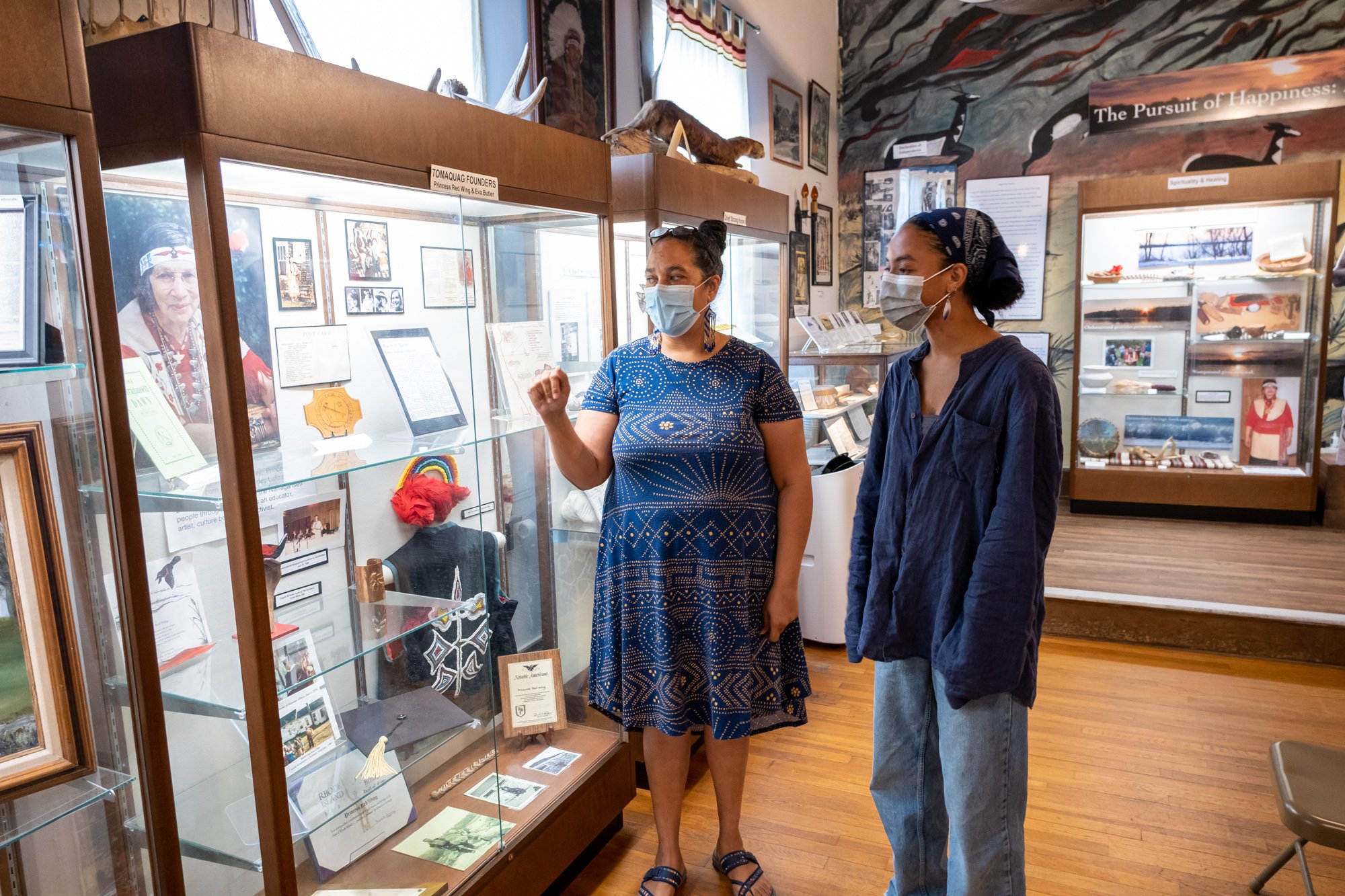
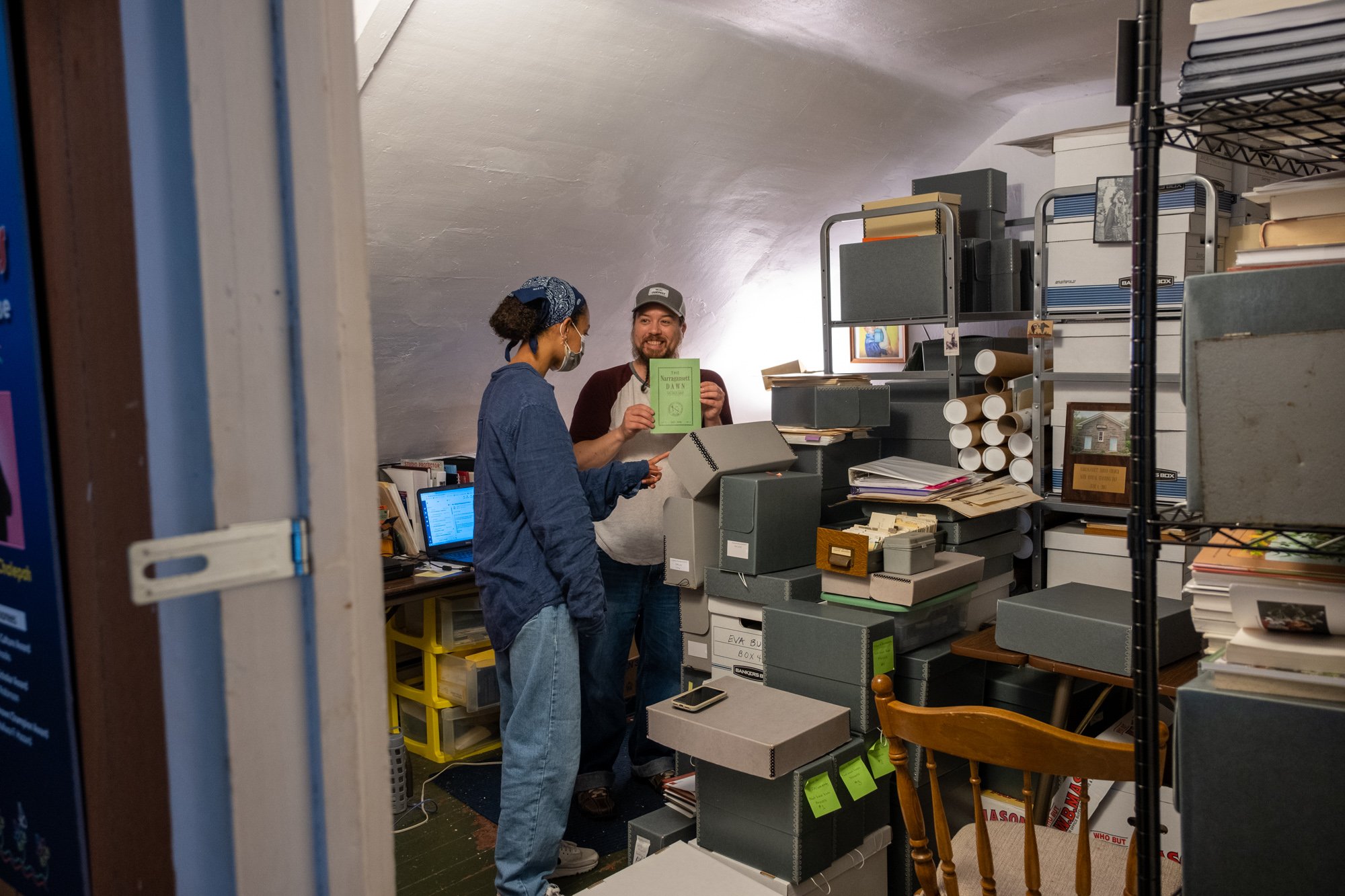
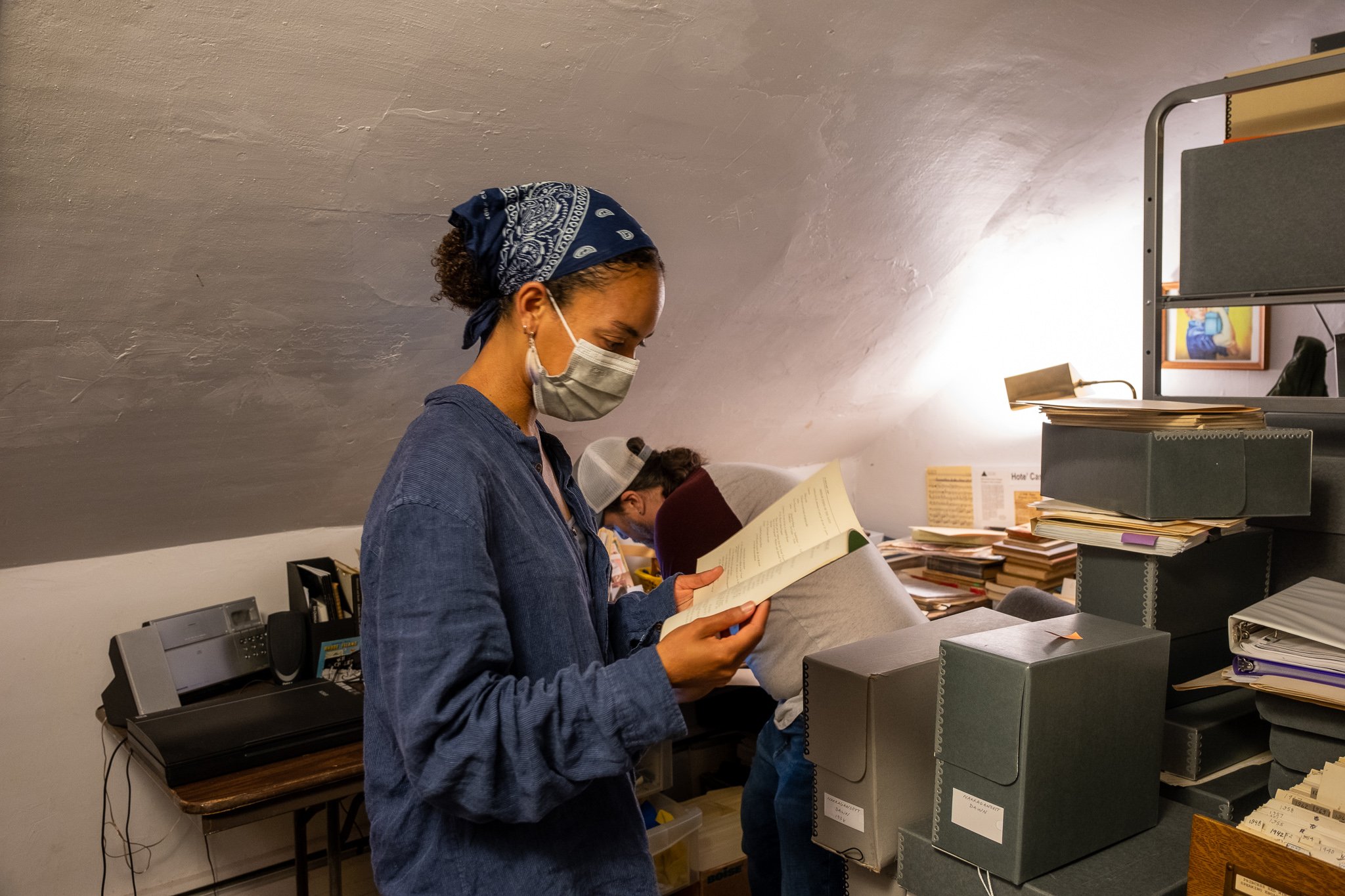
Images courtesy of Jill Kimball
Stolen Relations
The Mellon grant has supported the project Stolen Relations (formerly the Database of Indigenous Slavery in the Americas) a community-centered database project based at Brown University that seeks to illuminate and understand the role the enslavement of Indigenous peoples played in settler colonialism over time. During the Summer of 2021 the project launched a virtual institute for tribal community members focusing on archival frameworks and digital humanities methodologies.
K-12 Curriculum
The Reimagining New England Histories K-12 curriculum initiative is a collaborative project that coordinates the efforts of various community members, educators, scholars, and knowledge keepers to create resources and lesson plans that offer a more inclusive account of the region’s past.
Organized around the themes of place, community, and voices, the curriculum will feature the experiences of Indigenous, Afro-Indigenous, African, and African American peoples. The resources produced by the committee will encourage learners to appraise the centrality of various individuals and groups as they worked to shape both historic and modern realities. In addition, the curriculum will challenge learners of all ages to reexamine local histories and consider how different peoples have defined, existed, and survived in a landscape that is now commonly referred to as New England. The committee will begin the process of organizing sources, producing historical narratives, creating educational materials, and writing lesson plans during July and August 2022.
PEOPLE
Graduate Mellon Fellows
Allyson LaForge
Larissa Nez
Miranda Worl
-
Allyson LaForge is a PhD candidate in American Studies at Brown University whose research engages Native American and Indigenous Studies, settler colonial studies, and histories of the Native Northeast. Her dissertation project, Materializing Futurity: Networks of Native Organizing in the Northeast, examines the role Indigenous material culture played during transnational Native Northeast movements of the nineteenth and twentieth centuries, led by coalitions of Native leaders, activists, artists, craftspeople, and writers who worked to resist settler colonialism and ensure Indigenous futurity. She holds a BA in History and French from Mount Holyoke College and an MA in Public Humanities from Brown University, and completed her MA practicum as a curatorial assistant at the Abbe Museum in Bar Harbor, Maine.
-
Larissa Nez earned her BA in Art History from Notre Dame, and will graduate with an MA in Public Humanities from Brown in 2022. Already an accomplished curator and scholar, Larissa’s articles on Jaune Quick-to-See Smith are featured in exhibition catalogs at the Whitney Museum and the New Mexico Museum of Art; moreover she recently curated an exhibition in Color Riot!: How Color Changed Navajo Textiles at Montclair Art Museum. This Fall, Larissa will begin her PhD in Ethnic Studies at UC Berkeley. Her research explores the ways Afro-Indigenous, Black, and Indigenous scholars, artists, and communities challenge and redress western intellectual traditions with their theories, ideas, and epistemologies. She is keen to research modes of resistance and survivance in visual (re)presentations of Black and Indigenous histories, sacred geographies, modes of kinship and belonging, and the formation of memory.
-
Miranda Worl is a 2nd-year Public Humanities MA Student & AY21-22 Fellow at the Native American and Indigenous Studies Initiative.
This past year Miranda has worked with the “Reimagining New England Histories” project, as well as aided in curriculum development and planning for the upcoming Black & Indigenous Summer Institute. Her research interests at Brown revolve around merging Education with Cultural Heritage and Museum Studies in order to best serve statewide and local heritage centers back home in Alaska.
Visiting Mellon Faculty
Dr. Mack Scott, Visiting Assistant Professor, Brown University (2021-2023)
Mack Scott is a lifelong educator who has worked with learners in various capacities and in multiple states including Rhode Island, Connecticut, Virginia, Kansas, Hawaii, and Texas. His experience as a former coach has taught him that it is the building of interpersonal relationships that leads to the greatest gains on and off the field. Mack grew up in Rhode Island and is a member of the Narragansett Nation whose ancestral homelands comprised most of the current state. He earned a B.S. in Education from the University of Rhode Island, a M.A. in History from Virginia Commonwealth University, and a PhD in History from Kansas State University. As a scholar, his work focuses on the intersections of race and identity and employs agency as a lens through which to view and understand the voices, stories, and perspectives of traditionally marginalized peoples. He enjoys trying to entertain his three children and his favorite place is the beach, however, he is partial to the ones in Hawaii and Rhode Island.
Dr. Selamawit Terrefe will join Williams College as a Visiting Faculty Fellow, Williams College (2022-2023)
Dr. Selamawit D. Terrefe is an Assistant Professor in English specializing in Global Black Studies, Gender and Sexuality, Psychoanalysis, Continental Philosophy, Critical Theory, and Radical and Revolutionary Politics. Attending to the intersections between race and gender, popular culture and fantasy, and violence and desire, she has published in Theory and Event, Rhizomes, Oxford Bibliographies, The Feminist Wire, and has publications forthcoming by Rowman & Littlefield and Random House’s Oneworld. Her current manuscript, Impossible Blackness: Violence and the Psychic Life of Slavery, deploys psychoanalytic interventions centering on anti-Black violence to generate alternative paradigms of thought regarding race, sex, gender, the Black intramural, and revolutionary politics. Terrefe’s future research, conceptualized as a ‘semio(n)tics of Blackness,’ theorizes what she deems the ontics of Black maritime by turning attention to the ontic entity of the slave-in-flight in contemporary discourses of global Black migration and through Afro-futurist visual arts. Terrefe earned her PhD in English from the University of California, Irvine. Before coming to Tulane, she was a postdoctoral fellow in Black Atlantic Studies at the University of Bremen, Germany, in the department of English Speaking Cultures.
Dr. Jason Mancini joined Connecticut Humanities as Executive Director in 2018, engaging and recentering Connecticut’s history and heritage community around collaborations, racial and cultural equity, and digital initiatives. He is also a co-founder of Akomawt Educational Initiative and former Executive Director of the Mashantucket Pequot Museum and Research Center. For 35 years, he has worked for, collaborated with, and supported initiatives of the tribes and Indigenous peoples of New England, Alaska, Hawai’i, and Aotearoa (New Zealand). His academic interests include Indigenous social networks, Indigenous migration and cultural geography, maritime history and critical race theory. Jason has served as Visiting Assistant Professor of Anthropology at the University of Connecticut and at Connecticut College, Visiting Assistant Professor of History at Brown University, and Social Sciences Instructor at Sea for Sea Education Association (SEA). Jason holds a M.A. and Ph.D. in anthropology from the University of Connecticut with expertise in the ethnohistory of New England.
Visiting Fellows
Grant funding allowed Brown University to hire two visiting community practitioner fellows, Jason Mancini and Cheryll Toney Holley, who will be key members of grant-related work. Their work focuses on public humanities research projects and collaborations centering Indigenous histories and racial and cultural equity.
As Sonksq (female leader) of the Hassanamisco Nipmuc Band (formerly the Nipmuc Nation), Cheryll Toney Holley advocates for economic and social justice in all aspects of her community including producing and distributing healthy foods, creating and encouraging connections for Nipmuc artists, pursuing land back opportunities and promoting cultural education for Nipmucs of all ages. A professional researcher, writer, and speaker specializing in African American and Indigenous peoples of New England, she shares her passion by compiling genealogies and written family histories for descendants of New England’s communities of color.
Up Next
The project will have its second full Indigenous and African American advisory group gatherings, July 15th-16th, 2022 at Mystic Seaport Museum, public health conditions pending. This gathering will be an important moment for the working committees to share their work to date and solicit feedback from the advisory committee.

Munson Institute & Mystic Seaport Museum Summer 2022 Internships
Munson Institute
June 27 – July 29, 2022
During the summer of 2022, Munson Institute classes will be a part of the Reimagining New England Histories: Historical Injustice, Sovereignty and Freedom project. The Frank C. Munson Institute at Mystic Seaport Museum, in collaboration with the Center for the Study of Slavery & Justice at Brown University and Williams College, will hold classes at Mystic Seaport to interrogate the region’s past. The history and legacies of settler colonialism, racial slavery, servitude, dispossession, Indigenous resistance, and African-American strategies for fashioning pursuits of freedom will be considered. A distinctive feature of this summer program will be the framing of these topics within the context of New England’s maritime setting, an environment that fostered interaction, mobility, and exploitation. To learn more and apply, please click here
Mystic Seaport Museum Summer 2022 Internships
June 6-August 12, 2022
The summer internship program at Mystic Seaport Museum is for college students interested in pursuing a career in museum studies, museum education, anthropology, public humanities, maritime studies, or other related fields including Native American, African, or African American Studies. Reimagining New England Histories Summer 2022 interns will have the opportunity to go behind-the-scenes at Mystic Seaport Museum and other partner institutions. Discussion seminars, readings, and staff presentations will introduce interns to the work of telling the story of New England maritime history more inclusively. Interns will work two days per week at Mystic Seaport Museum or partner institutions, and complete an individual research project related to the topic of the Mellon grant. This is a full-time internship that pays a stipend with free onsite housing.

RNEH Summer Institute
July 10-22, 2022
In Summer 2022, the Center for the Study of Slavery & Justice, Tomaquag Museum, and the Haffenreffer Museum of Anthropology will jointly sponsor a two-week pre-college program for 20 high school students: The Reimagining New England Histories Summer High School Institute students (supported by external funds).
The institute will focus on resistance, healing, and community building as well as sovereignty, freedom, and spirituality. Students will explore these topics through classroom conversations, visits to local museums and sites of signifcance to Indigenous and African American communities, and in discussion with activists, scholars, and practitioners. This pre-college experience is offered free of charge to participants and is supported through outside funding.


